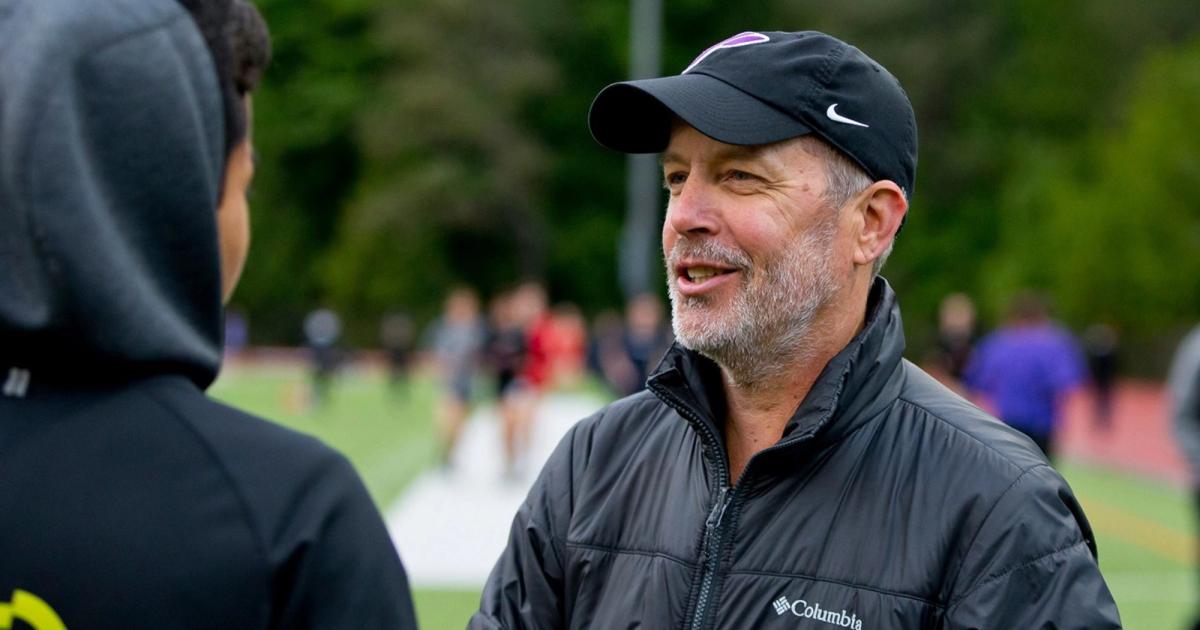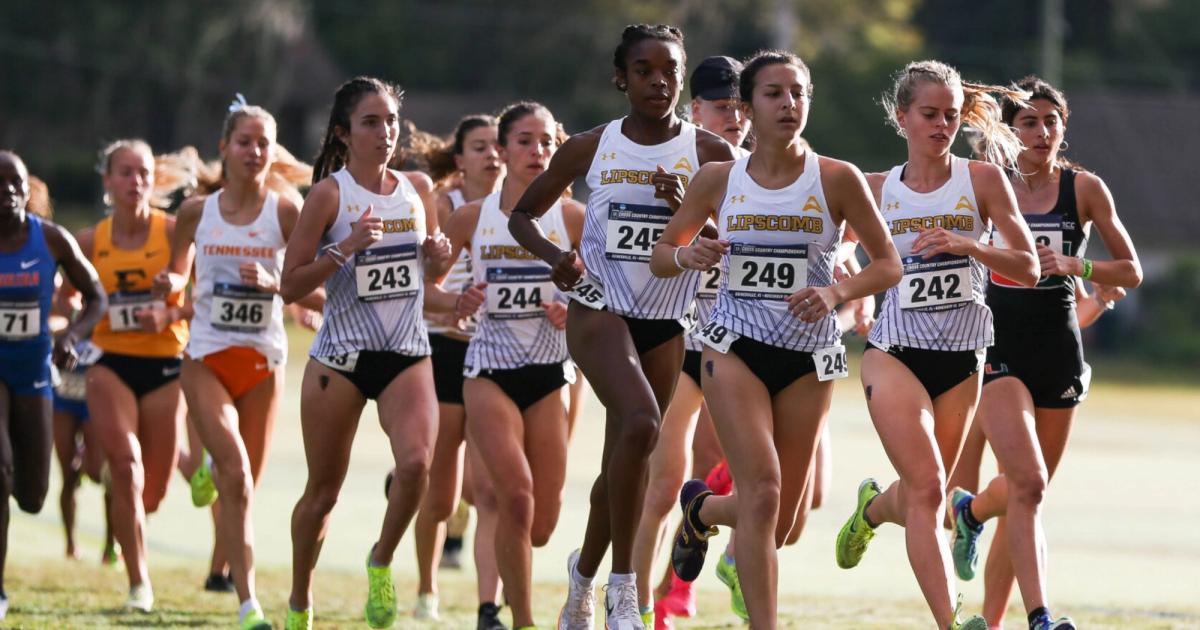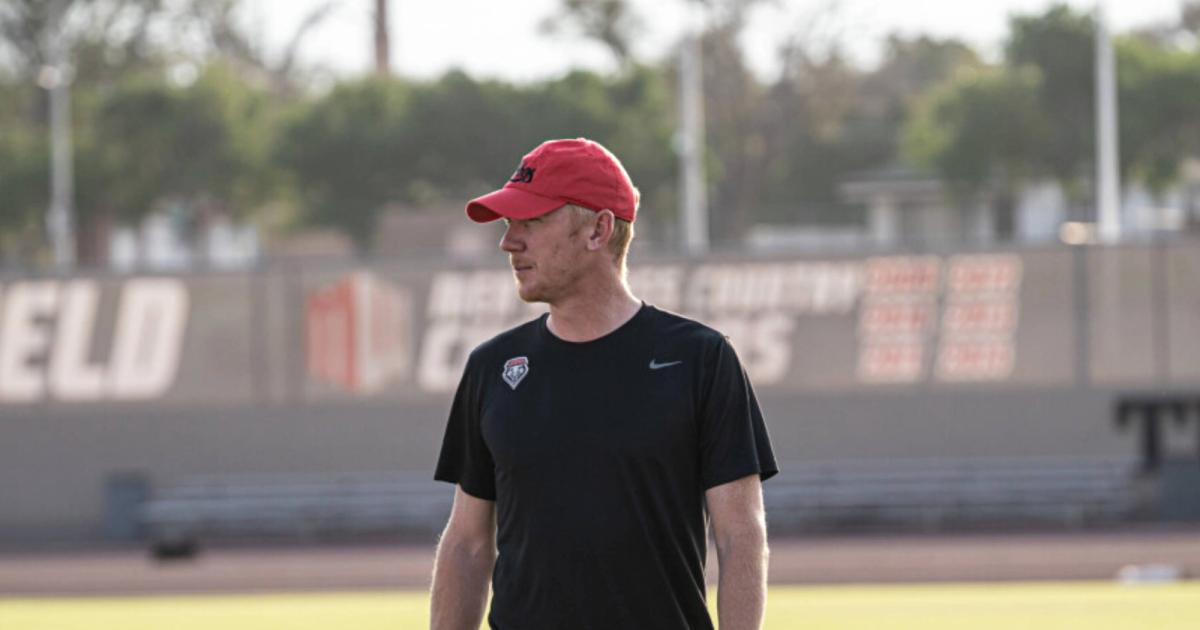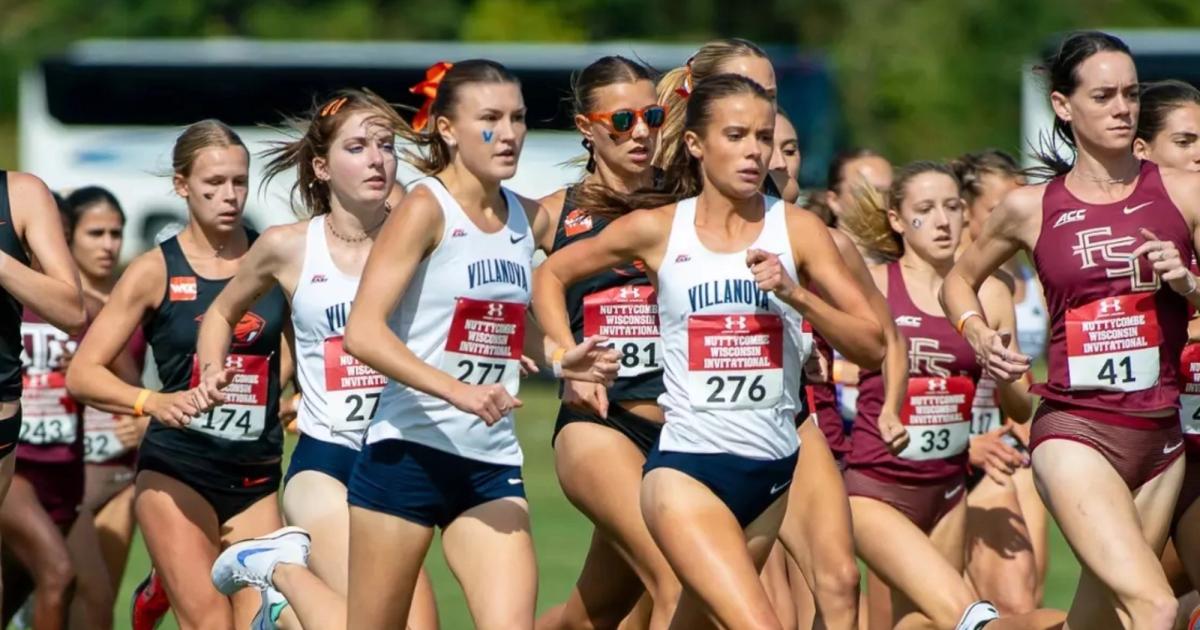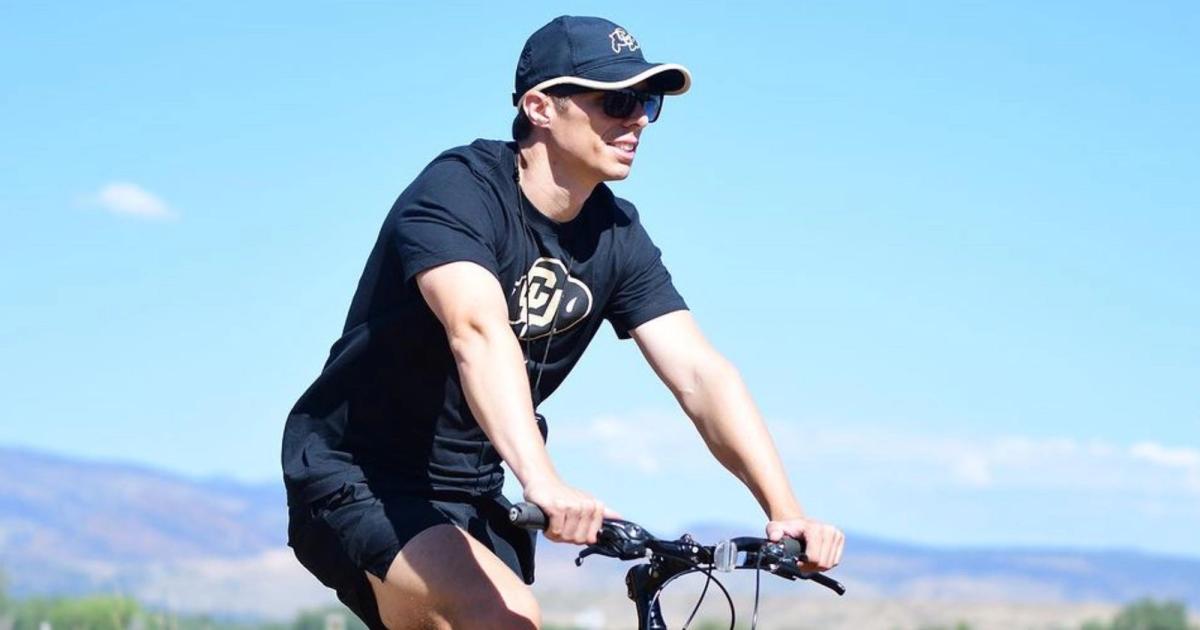By Jasmine Fehr
October 22, 2024
"I graduated in ‘86 and came back in ‘90 as the coach and set a goal: get the team to NCAAs. Every year that's my goal. If you have that attainable goal to work for, you can sell the team to do the work and we’ll have a shot."
For this week’s coach spotlight, Jasmine Fehr caught up with Rob Conner, Head Coach of the University of Portland’s men’s cross country and track program. Rob Conner – more commonly known as “RC” – is in his 35th year with the Pilots, having competed for the team himself before transitioning to coaching in 1990.
During his tenure with the Pilots, RC has led the men to 23 appearances at the NCAA Cross Country Championships, including ten top-ten finishes. In a span of five years, the Pilots captured three podium finishes: third in 2014, second in 2017, and third in 2018.
In our interview, RC reflects on his decades of experience coaching at Portland, how he’s created a legacy of distance running success at one of the smallest Division 1 schools in the NCAA, what guides his recruiting process, and more of his insights as a leading coach in the sport.
The following interview with Rob Conner has been edited lightly for length and clarity.
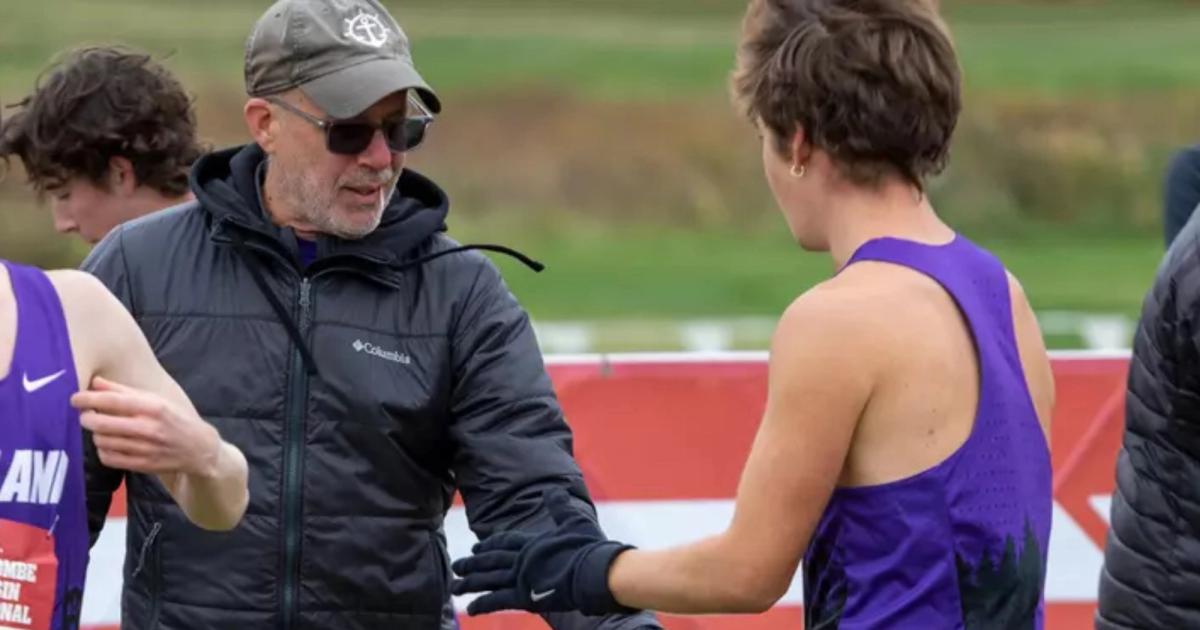
Courtesy University of Portland Athletics
Jasmine Fehr: Rob Conner, welcome to CITIUS MAG! To kick things off, can you share your excitement for this season with the Pilots and what you're looking forward to most?
Rob Conner: We have a great team this year and it's unfortunate that not everybody realizes that at this point. We had bad luck with one runner that barely finished at Nuttycombe. I'm pretty sure at 6K we were ahead of Washington in maybe sixth or seventh place, which would be a great finish for anybody. Then we had a problem and all of a sudden with one one guy, we dropped back to 14th just in the last mile.
Part of coaching is overcoming this and ensuring the team knows what we have to do – proceeding with the work and the process. It just doesn't give us a lot of insurance going into regionals.
We've got a big battle in a couple of weeks with Gonzaga at the conference level. They've beaten us the last couple of years, but I didn't want to run the conference meet at Dellinger. It can be easy to think you accomplished something at Dellinger and then forget to get it done at the conference meet. That's our challenge at this point.
I decided to allow other guys to have a shot to get on the conference team and we had some guys really step up. Estanis Ruiz didn’t finish at Nuttycombe, so I was like, ‘You’ve got to come back and run. You’ve got to show me something.’ Then he really did a nice job and ran 23:38 at Dellinger. So add that in with the other guys that ran great at Wisconsin and now we've got another piece.
It's going to be tough. This West Region is a killer with eight great teams at minimum. I don't mean to exclude anyone, but there are eight national-level teams out here… Stanford is lights out and Cal Baptist would probably be the number two team in my estimation. Then we have this full package of teams that are very similar. We'd like to try to finish as high as possible at regionals. That's what the Pilots do and that's what we're planning on doing this year too.
"Part of coaching is overcoming this and ensuring the team knows what we have to do – proceeding with the work and the process."
You mentioned that you're a little disappointed with the team’s performance at Nuttycombe. As you continue training, what sort of things are you telling the men to bolster their confidence heading into the next few meets?
The key is to look at the 14th [place at Nuttycombe] and understand what happened. Are we the 14th team? Not exactly without this bad luck. So we want to say, ‘Hey, if this happens, we're still one of the top teams.’ So just re-emphasizing that we have a great team. I started the year with this team thinking that we’re a top 10 national team. But you’ve got to have everybody run A+ races to prove that. My goal is top 10 at NCAAs and this team's as good as any team we've had.
We’ve got Matt Strangio out front and then some really consistent people behind him. But we've only run once, so we haven't proven that yet. We will, and we're looking forward to embracing the challenge. If we don't have any wins because we've beaten only whoever we’ve beaten, some of that's out of our hands. What's in our hands is running our best at regionals – and that's what we plan to do.
"I started the year with this team thinking that we’re a top 10 national team. But you’ve got to have everybody run A+ races to prove that. My goal is top 10 at NCAAs and this team's as good as any team we've had."
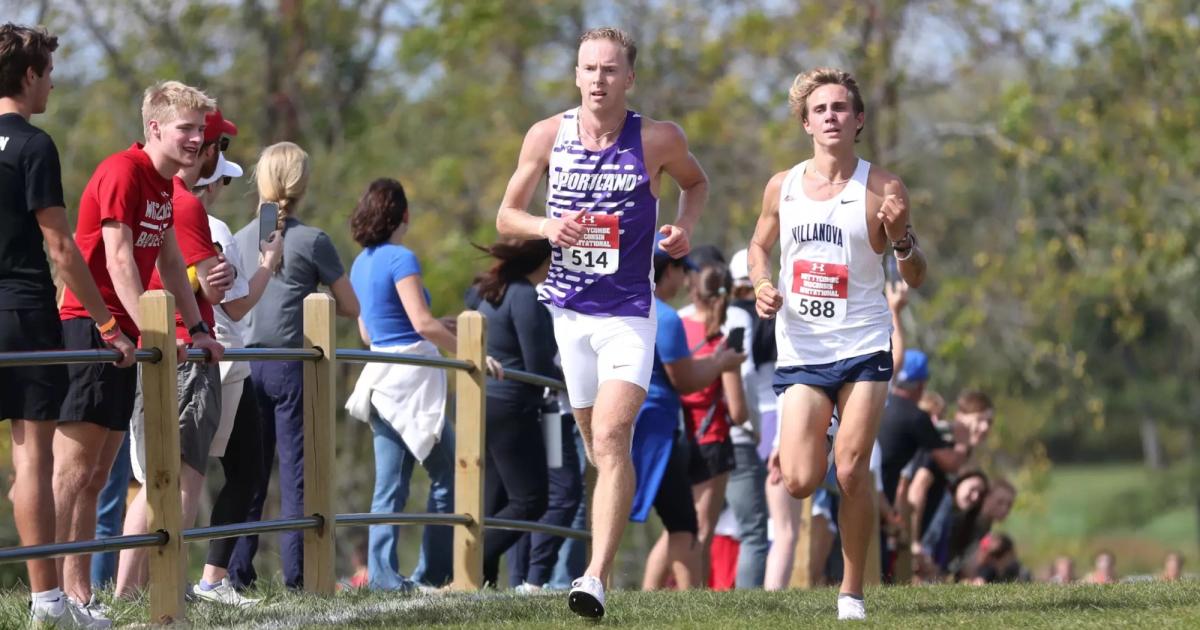
Courtesy University of Portland Athletics
Looking back on Portland’s legacy, it's not uncommon for the team to have a couple low key meets and then show up when it matters most. Portland has a history of being a dark horse.
We want to always remember we're one of the smallest Division I schools. We have around 4,000 students, so we never want to take that for granted. Everything we've accomplished over the years has been about beating the odds. We've made it to 17 of the last 19 nationals. If you take our last 17 trips to NCAAs, we've averaged 11th place. It's crazy to think of such consistency and production from a small school.
I'm an alumnus. I graduated in ‘86 and came back in ‘90 as the coach and set a goal: get the team to NCAAs. Every year that's my goal. If you have that attainable goal to work for, you can sell the team to do the work and we’ll have a shot. It's fun. The only pressure here is the pressure I put on myself based on some of those other teams finishing so high.
You mentioned those three podiums. Those were top-three finishes in each of those years: third, second, and third. Over the last ten years, we have fallen into one of only six programs that have done that. NAU has done it eight times out of the last 10 years. That's pretty impressive, obviously. BYU has done it five times, and Oklahoma State has done it four. Then the University of Portland has done it three times, along with Stanford and Colorado. It's crazy what our guys have accomplished.
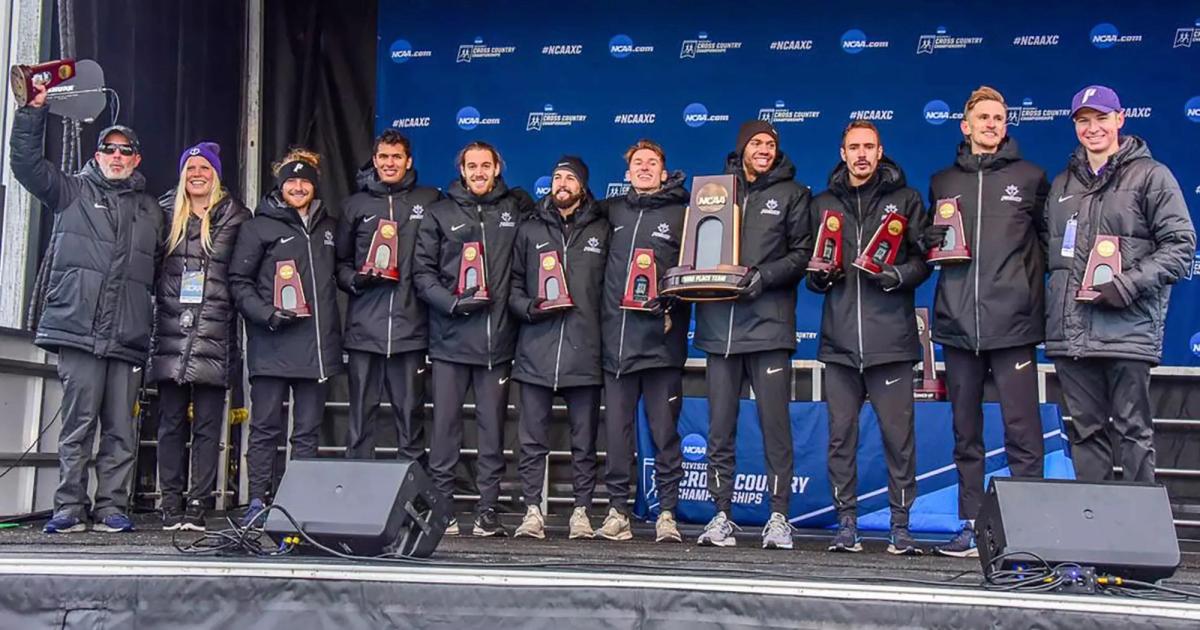
Courtesy University of Portland Athletics
It's a strange world right now with the publicity of all this recruiting on Instagram and such. One year we had a recruiting class that I thought was number one in the nation and it just happened to be the one year that FloTrack didn't do their preseason recruiting rankings. So we get who we get and we've kind of been a destination for transfers.
"This is my eighth cohort of five-year chunks. The eighth time we’ve turned over the roster completely in my career. It's hard to believe that I've been doing this for 35 years because it doesn't seem that long. I'm just as excited as I was when I got here."
Speaking of recruiting, what are your thoughts on the increased number of international athletes and older athletes entering the college system? There's been a lot of recent changes and the NCAA probably looks different from when you first started coaching.
I don't want to be a sour grapes guy, but if you want to pay the $12,000 or $15,000 to the recruiting agency to get one of those top Kenyans, I've got William's number. He's doing a great job sending over the big-time guys that have come to the NCAA. These are guys who probably should have professional shoe contracts, but I think that money is getting harder to come by now. So these great athletes are coming over to the NCAA, all through one agency. We're just not going to be able to pay the money to get those emails.
That’s the situation, but so what? Last year at nationals, I had four guys out of my top seven that had run slower than 9:20 for two miles in high school. We're not going to win with those four guys being on our seven, but it was very satisfying as a coach to work with kids and have them train hard enough to go to the national meet.
I've been in staff meetings in athletics over the years where sometimes you feel like cross country is not that big of a deal. So whenever I get the stage in one of those meetings, I would oftentimes slip in: ‘Cross country is just like basketball. You only need five good ones to get the job done. It's pretty easy…’ At other schools, they can only run five too. So we still have a shot. It takes five guys that are really talented.
When we got second at NCAAs, we had four homegrown guys on the team. We had Jeff Thies, Nick Hauger, Caleb Webb, and Logan Orndorf – that was our core. Then we had one graduate transfer and two international guys. One of the international guys was the number one man and the other was number seven. So that core four is what got us second at NCAAs.
One year we had a team where all seven guys were within a five-hour drive from campus and we took seventh at NCAAs. That's special.
It took me about 15 years, maybe 20 even, before I had a varsity runner from the state of California. Then over the last 10 to 12 years, we've had several state champs. It's never been easy. We're going to work with who we get and give them a positive environment for them to maximize their ability. We don't know what they can do. We have a really wide variety of people and it's fun to work with all of them to see what they can accomplish.
"One year we had a team where all seven guys were within a five-hour drive from campus and we took seventh at NCAAs. That's special."
Building off of that, what sort of athletes are you looking for when recruiting?
The first thing we look for: what is his GPA and what does he want to study? We have a roster of around 50 track and field athletes and two-thirds of them are walk-ons.
We have to try to recruit that 3.8 GPA and higher because our school gets out a lot of academic money. If you have a 4.0, you're probably getting $30,000 in merit each year that you're here. Our school is just too difficult. I don't want to recruit low-academic guys even if they're talented. I'd rather work with motivated, organized guys who are here for an academic purpose.
What’s important to you in building team culture?
We had a fantastic assistant coach. Jack Mullaney was my first full-time assistant, and that was about seven years ago. His contribution to our program was very important. One thing he quickly grabbed onto was the need to build team culture.
In the past, we probably had that old-school mindset that the fastest guys are the fastest guys and the other guys are the lesser guys – it's really an outdated model. No team or coach should be fostering that kind of approach anymore. We want to make sure everybody's contribution is recognized and that they feel just as important in their efforts as anybody else on the team.
We've done a couple of things since Jack was here. We started doing these five-minute talks. Jack noticed that the Philadelphia 76ers started this little thing to build community within their team. Jack would come up with a prompt and then each week a new guy would give a five-minute presentation to the team. This just allows vulnerability, it allows us to get to know each other better, and we can share things that don't get shared at practice. We do that on Thursday mornings.
On Friday afternoon after a hard workout, we always have shoutouts. It's a really fun little exercise. Everybody's done with a great workout, we're all in a good mood, and then we stand in a circle and say, ‘Anybody have a shoutout?’ A guy raises his hand and says, ‘Hey, I want to shout out someone. Thanks for helping me with this chemistry test.’ Or, ‘This guy took me to the store the other day.’ We want to recognize small acts to build a positive culture within the team and not take those for granted.
Then normally on Sunday morning before practice, we will review the race from Saturday and highlight everybody – like if a guy broke 15:00 in the 5K for the first time or ran a PR in the 3000m, even if it's a secondary guy on the team. We want to make sure that those small wins are recognized. Those are things that get people thinking in a different direction.
I tell people in the recruiting process, ‘We want you to come to practice to help other guys get better.’ I know that's kind of a strange concept: you're not coming to get you better. The other guys are going to help you get better, but you're helping them get better by being at practice and running the workout in the prescribed manner. If a guy is a little sick, he goes into a different group and does what he can – and that's a very positive opportunity.
So it’s about maximizing workouts in the most positive way and then maximizing that weekly workload, that monthly workload. It’s a really important piece of our program that has evolved. We never thought about this stuff prior and it's really become a hallmark of our program.
"We want to make sure that those small wins are recognized. Those are things that get people thinking in a different direction."
I love the five-minute talks and shoutouts after workouts. That makes such a difference and helps everyone feel validated. Looking back over your long career in coaching, do you have a favorite memory that sticks out to you?
I always bring myself back to the start of the program, to the start of my career when I sat down in the office. The first two guys to meet me and talk training were Pete Julian and Ian Solof. They were teammates in high school. I told them, ‘Hey, we can qualify for nationals.’ And in ‘93, we won regionals. That year we had five seniors that we built up and I was like, ‘We may never make it to NCAAs again.’ Boy, that was special. We got 12th place, our first-ever time, and it was a disappointing 12th. Those guys were setting the course for us in hard work, goal setting and trying to achieve something.
When I was on the team, nobody had ever mentioned nationals. We didn't even know what that was. We went to conference, then regionals, and then we were done. But to set a big goal like that, achieve it, and then to be worried that you may never do it again, that's what drives the motivation. There are always cross country nationals we want to try to make. And if there's been a year where we didn't make it, we're disappointed and we work a little harder and try to get it done the next year.
Winning regionals in ‘93 really is the highlight of my career despite finishing second and third at NCAAs.
"But to set a big goal like that, achieve it, and then to be worried that you may never do it again, that's what drives the motivation. There are always cross country nationals we want to try to make."
To close things out, what do you enjoy most about coaching at Portland and where do you see the future of the program going next?
I like to watch a lot of interviews with coaches and the thing that everybody likes the most is going to practice. Practice is where you see the hard work applied and the teamwork. It's just a positive atmosphere that is so unique to this job. Somehow I've been getting paid to do this for 35 years, which I feel very fortunate for.
Seeing other people work hard, set a goal, and then having a small role in helping them with that. Never am I going to take credit for anybody else's hard work; it's hard work and discipline to achieve anything in NCAA Division I in any sport. The coach can maybe offer the scholarships and write a few workouts, but it comes down to talented people working hard.
To be able to watch elite people honing their craft as young men – I wish I could have worked that hard myself. That's why I was solid, not good. These guys, top to bottom… Everybody's maxing themselves out. And boy, it's inspiring. It's a fun job and I’m thankful that I've been able to get to do this.
Many more years to come! Thank you so much for joining us. We'll be following along the team’s results!
___________________
Keep up with all things track and field by following us across Instagram, X, and YouTube. Catch the latest episodes of the CITIUS MAG Podcast on Spotify and Apple Podcasts. For more, subscribe to The Lap Count and CITIUS MAG Newsletter for the top running news delivered straight to your inbox.
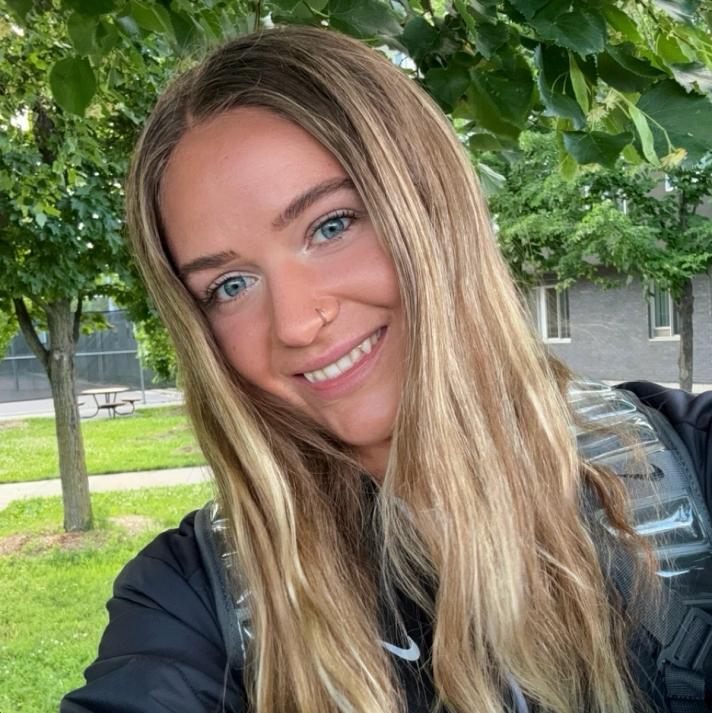
Jasmine Fehr
Jasmine Fehr produces the CITIUS MAG Podcast, manages our website, and shares content across our socials. She’s a marathon runner training in Flagstaff, Arizona. Her collegiate running career spanned the University of Portland and the University of Tennessee, where she earned a Bachelor’s degree in Psychology and Master’s degree in Communications.
